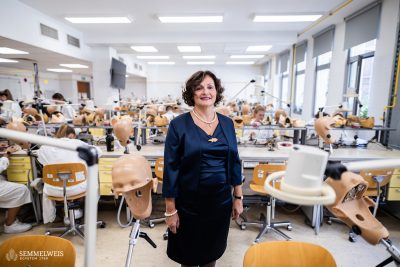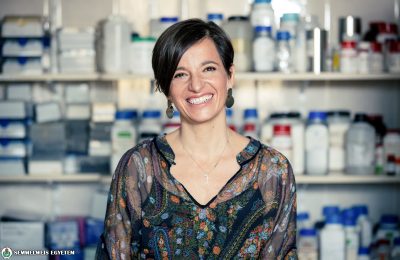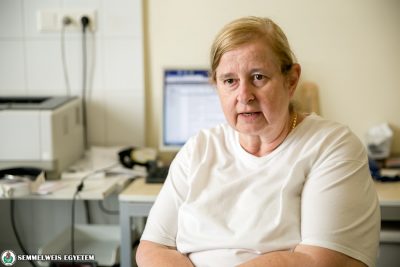What does a university professorship mean to you?
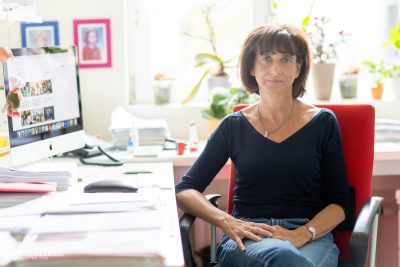 It is a great honor of course, not only for me, but also for my department and for theoretical teaching and research. However, I think that it is not the title that is important, but that it allows us to better represent our immediate colleagues and the discipline we are involved in. Any recognition that goes to theoretical institutes has become particularly important in recent times. The appointment cannot, of course, be seen as an achievement in a sporting competition, where one does well at a given moment. The application for a university professorship itself requires a long career as a researcher or teacher, and the criteria include how many years one has to spend, for example, in teaching.
It is a great honor of course, not only for me, but also for my department and for theoretical teaching and research. However, I think that it is not the title that is important, but that it allows us to better represent our immediate colleagues and the discipline we are involved in. Any recognition that goes to theoretical institutes has become particularly important in recent times. The appointment cannot, of course, be seen as an achievement in a sporting competition, where one does well at a given moment. The application for a university professorship itself requires a long career as a researcher or teacher, and the criteria include how many years one has to spend, for example, in teaching.
Was reaching university level teaching a definite goal for you, or was it more of a natural progression in your work?
It is more the natural result of a long process. In the theoretical field, it is often expected to have an academic degree; a doctorate from the Hungarian Academy of Sciences is practically a prerequisite for a university professorship, whereas in the clinical field this is not always the case. However, I do not like to look backwards, I learned from my mentors to always look forward, keeping the next goal in mind. So even now I don’t reflect on why I achieved this, or what exactly led me to this point. Although I didn’t necessarily seek it, it is certainly rewarding, and I am delighted to be proud of my colleagues, family and friends, and also to have the title as a boost to my team.
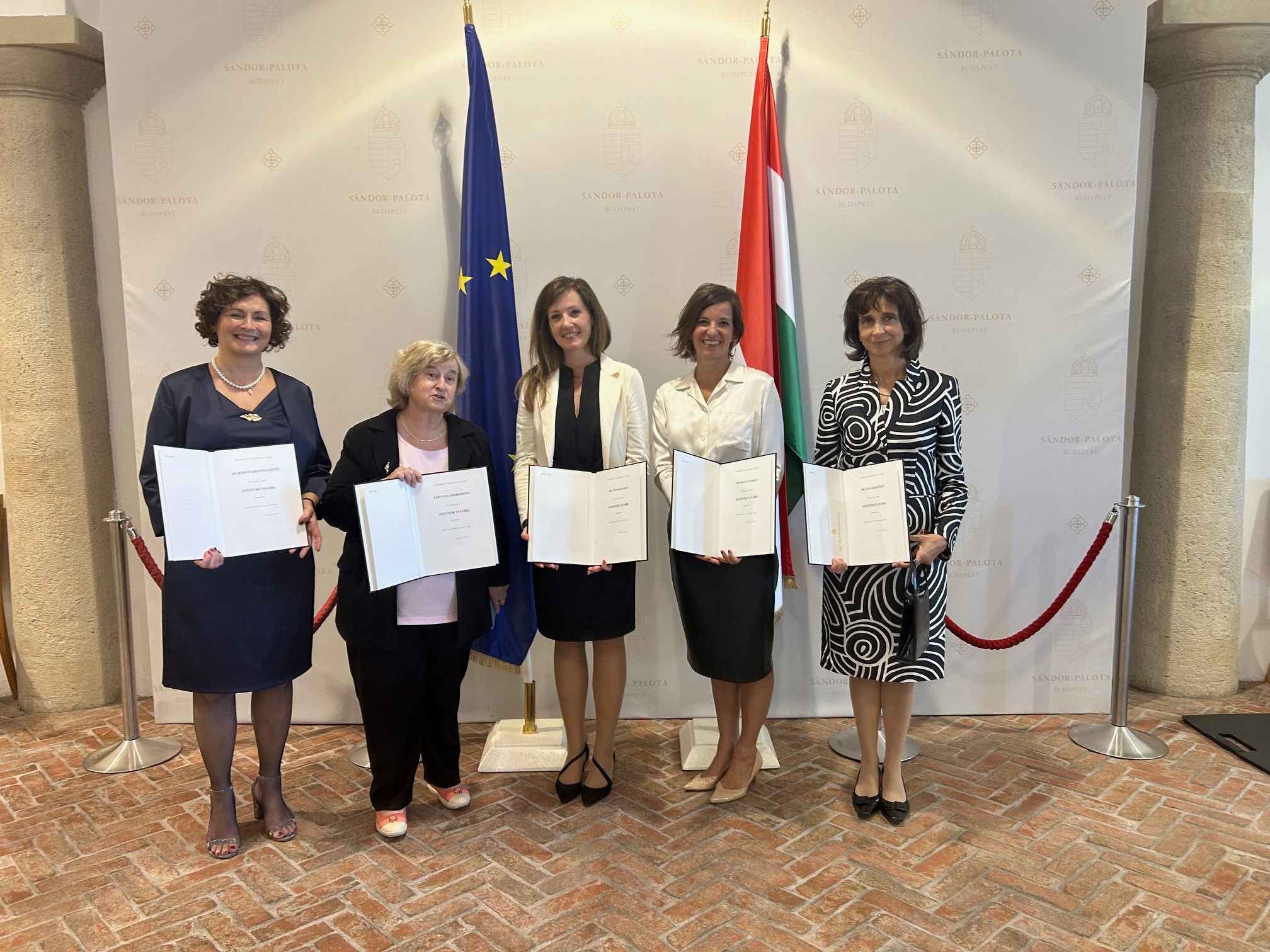
Have you had any publications that may have been particularly important for you to be awarded the title of professor, or of which you are especially proud?
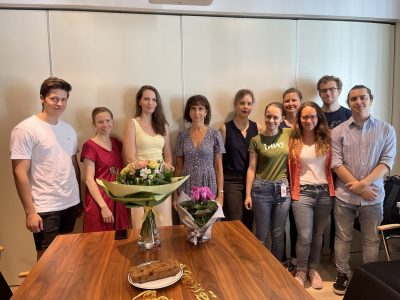 I could not single out a specific article. I tried my hand in many different fields before finally settling in the early 2000s on the topic I am working on now: the circadian rhythm, the clockwork that regulates the daily rhythm of our physiological processes. In 2007, I started a working group at the Department of Physiology, currently consisting of six people, with whom I am working on how the internal clock works at the molecular and organizational level, and what the consequences are if the internal timekeeping is not synchronized with the diurnal changes in the environment. The importance of these studies is illustrated by the fact that people who for whatever reason have this misalignment are more likely to suffer from metabolic diseases – we are currently investigating this area in particular – but also from circulatory diseases, cancer and psychological disorders such as depression. For me, it is essential that we carry out human studies as well, and I am pleased to have been involved in projects, either as first author or co-author, that revealed the fundamental patterns in this field.
I could not single out a specific article. I tried my hand in many different fields before finally settling in the early 2000s on the topic I am working on now: the circadian rhythm, the clockwork that regulates the daily rhythm of our physiological processes. In 2007, I started a working group at the Department of Physiology, currently consisting of six people, with whom I am working on how the internal clock works at the molecular and organizational level, and what the consequences are if the internal timekeeping is not synchronized with the diurnal changes in the environment. The importance of these studies is illustrated by the fact that people who for whatever reason have this misalignment are more likely to suffer from metabolic diseases – we are currently investigating this area in particular – but also from circulatory diseases, cancer and psychological disorders such as depression. For me, it is essential that we carry out human studies as well, and I am pleased to have been involved in projects, either as first author or co-author, that revealed the fundamental patterns in this field.
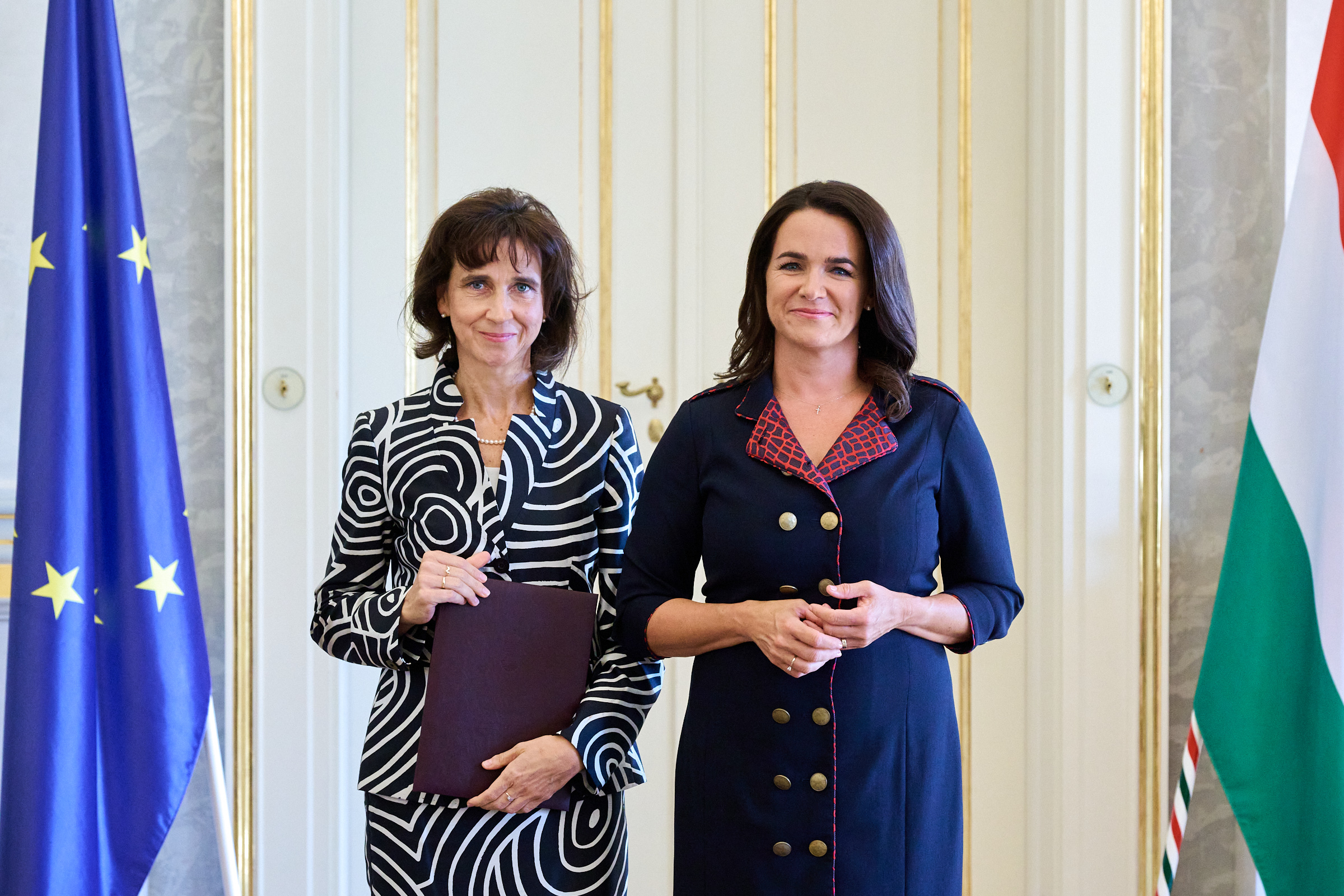
I also feel it is important that I was able to return to clinical life for a short period of time, more than twenty years after graduating from university, to obtain a degree in laboratory diagnostics – something rare among those working in theoretical institutes. It was an enriching experience to see how much clinical practice have changed, and how much diagnostics have evolved. I feel that this knowledge is also extremely useful in my teaching, so that I can better integrate basic theoretical knowledge with clinical practice.
How can you balance work and private life with so many tasks and roles?
A woman with a family to care for usually has to make a lot more compromises in her professional life than a man, and this is nothing less than a fact. Often times, there is clearly less time for family than is optimal, but this is not only true in academia. My husband is also a researcher, so he was understanding about that, and I was also lucky in the sense that my mum and my husband’s parents were very active grandparents, and helped a lot to make sure that my children didn’t feel neglected. As opposed to a clinician, I probably had the relief of not being on call, so my evenings were always about the children, trying to be intensely involved in their lives.
This year, a total of five women have been appointed as new professors at Semmelweis University, the highest number in recent years. Several of the new recipients are also pioneers in their own departments and institutes, the first female professors. In our series, you can read interviews with all five of them; the one with Dr. Hajnalka Vágó is available in English here, the interview with Dr. Ágnes Szirmai is available in English here, the reflections of Dr. Andrea Fekete are available in English here, and the interview with Dr. Krisztina Márton is available in English here.
Bernadett Bódi
Translation: Viktória Kiss
Photo: Attila Kovács – Semmelweis University, Gyula Bartos – Sándor Palace
